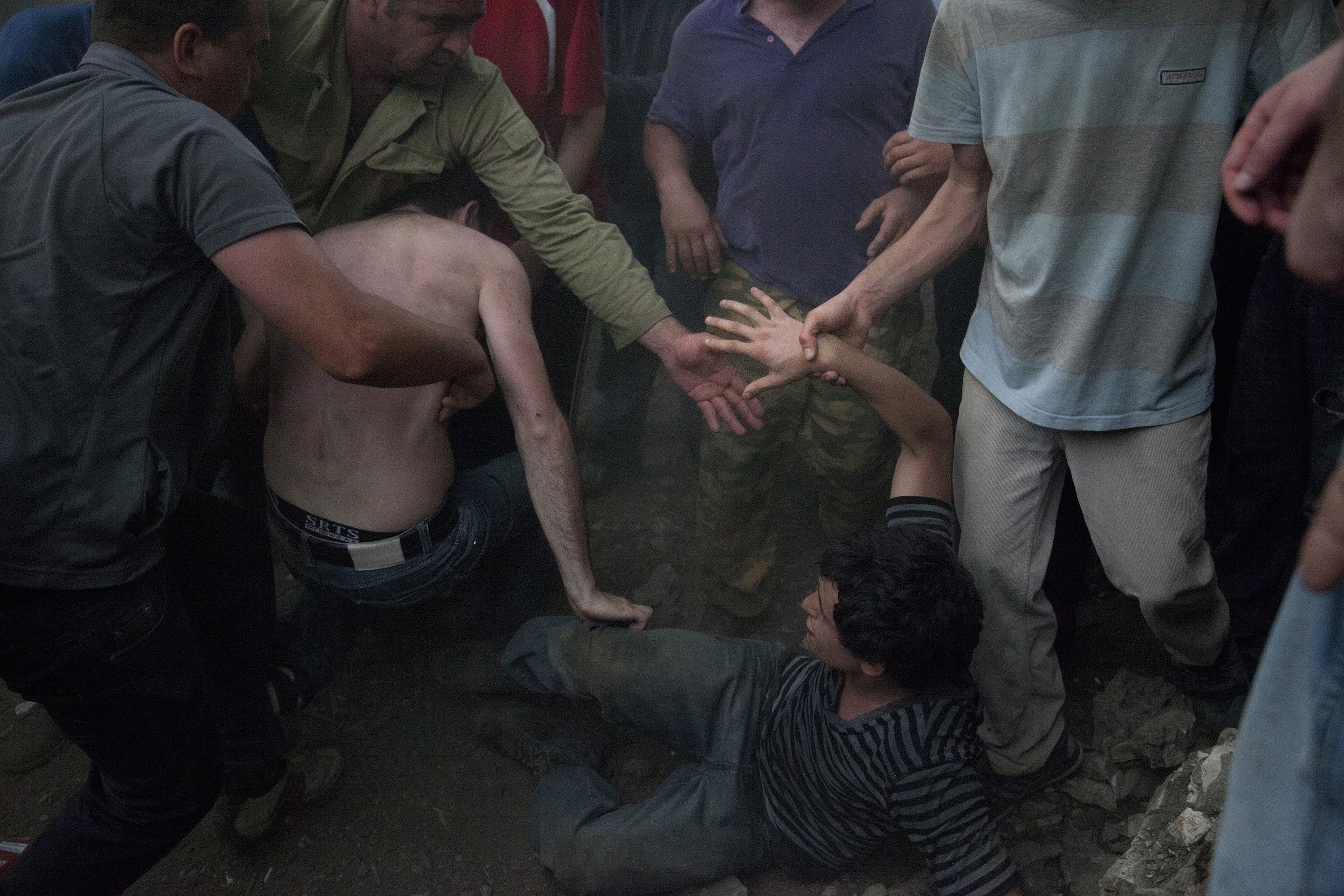The changing face of Georgia, captured in photos
- Text by Eva Clifford
- Photography by Daro Sulakauri

Daro Sulakauri was born in the Caucasus nation of Georgia in 1985. After spending part of her childhood in the US, she returned to Georgia and discovered photography. Shortly after, things began heating up in Tbilisi, and political demonstrations started to take place just outside her family home in the centre of the city.
Today, as we talk on her balcony, it’s difficult to hear each other over the sound of birds singing. But as a child, she remembers hearing the sound of gunshots. “I grew up in a generation that has witnessed a lot of transition,” she says. “There was always something going on, so it was a very interesting period for me as a photographer.”
After graduating from the Department of Cinematography at the Tbilisi State University, Sulakauri moved to New York to study photography at the International Centre of Photography (ICP), before returning to Georgia to work on her first stories.
In 2008, the Russian-Georgian conflict erupted and Sulakauri turned her focus to those affected. Travelling north, she met with people living along the occupied borderlines of Georgia, next to the de-facto “breakaway” regions of Abkhazia and South Ossetia – both of which are forbidden for Georgians to go with a Georgian passport. “To enter, you have to find someone to sneak you in,” she says. “So it’s a long process.”


As the boundaries of Russian-occupied territory are constantly shifting, Sulakauri says these people live in perpetual uncertainty, and “can literally wake up one morning to find their home is no longer in their homeland.”
“I learnt so much from the people I was photographing,” says Sulakauri. “You realise how fortunate you are and you begin to look at life in a different way.”
Changing Horizons covers just some of the stories Sulakauri has produced in her country over the years: “It chronicles my journey as a photographer, and the relationships with the people I have met over the years.”
“Everything’s subjective,” she adds. “I just try to tell the story in the most truthful light.”








More of Daro’s work can be seen on her official website.
Sulakauri was one of the exhibiting photographers at Kolga Tbilisi Photo Week, which takes place each May in the Georgian capital.
Enjoyed this article? Like Huck on Facebook or follow us on Twitter.
Latest on Huck

Bernie Sanders introduces Clairo at Coachella, urging young Americans to “stand up for justice”
Coachella charmed — The Vermont Senator praised the singer-songwriter for her efforts in raising awareness of women’s rights issues and Gaza.
Written by: Isaac Muk

The Changing Face Of Brooklyn, New York’s Most Colourful Borough
After three decades spent capturing stories around the world, Magnum Photographer Alex Webb finally decided to return home to Brooklyn – a place that champions chaos, diversity and community spirit.
Written by: Alex Webb / Magnum Photos

The mundane bliss of New York’s subways in the ’70s
NYC Passengers 1976-1981 — During a very different decade in NYC, which bounced between rich creativity and sketchiness, photographer Joni Sternbach captured the idiosyncratic isolation found on its rail networks.
Written by: Miss Rosen

Analogue Appreciation: lullahush
Ithaca — In an ever more digital, online world, we ask our favourite artists about their most cherished pieces of physical culture. Today, it’s Irish retro-futurist lullahush.
Written by: lullahush

Spyros Rennt captures connection and tenderness among Berlin’s queer youth
Intertwined — In the Greek photographer’s fourth photobook, he lays out spreads of togetherness among his friends and the German capital’s LGBTQ+ party scene.
Written by: Isaac Muk

The rebellious roots of Cornwall’s surfing scene
100 years of waveriding — Despite past attempts to ban the sport from beaches, surfers have remained as integral, conservationist presences in England’s southwestern tip. A new exhibition in Falmouth traces its long history in the area.
Written by: Ella Glossop